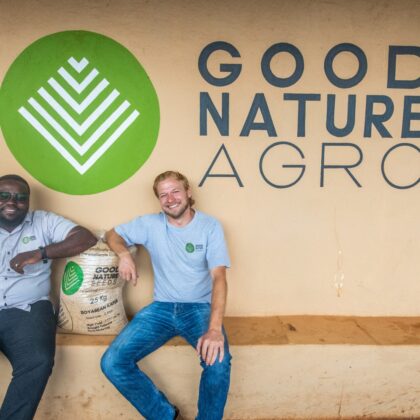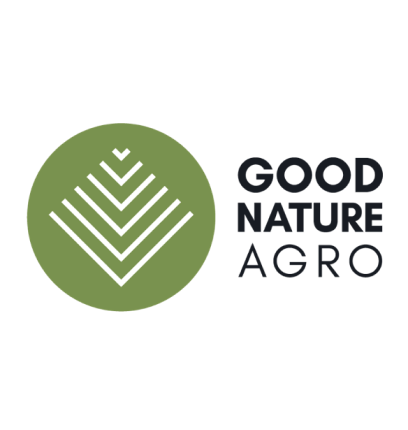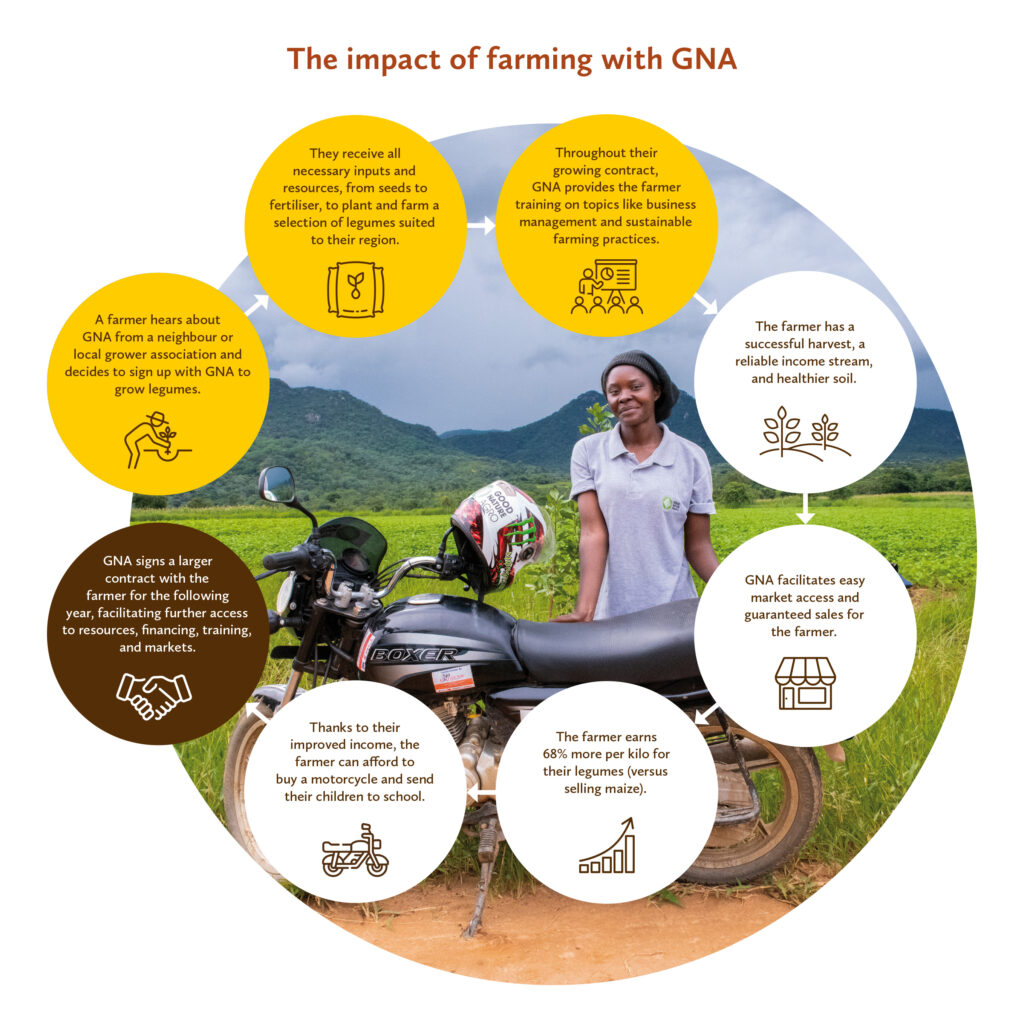

Growing a resilient future with Good Nature Agro
Sometimes, the ability to change a family’s earning potential starts with a handful of soya beans. Legumes like soya create lots of positive impact, from improving soil health, to improving farmers’ incomes, to supporting a balanced diet. They’re also a good investment, with growing demand across the globe from industries including canning, edible oils, food processors, and animal feed. That’s why Goodwell has always felt that it was “a no-brainer” to invest in Good Nature Agro (GNA), an agricultural social enterprise putting legumes in the spotlight. Their co-founder and CEO, Carl Jensen, joined a recent Goodwell Round Table to share some insights into their business and mission.
A business model with a mission
GNA partners with smallholder farmers in Zambia and Malawi to improve their livelihoods through climate-resilient, soil-nourishing legume farming, while linking these farmers to high-value markets: “we saw that farmers really responded to an extra source of protein in their home, as well as a unique crop where we could provide a market,” Carl observed. GNA has spent years working alongside farmers to selectively breed drought-resistant, early maturing legume varieties, including beans, cowpeas, soya beans and groundnuts.
The overarching goal is to enable farmers to professionalise operations and move out of poverty into the middle class. The company supports around 30,000 smallholders within an agritech-based business model, providing access to inputs, financing, climate-smart training, and a guaranteed market for their produce. Farmers working with GNA currently net three to four times as much as they earn for cash crops, like maize, on the same land.

Working with farmers for farmers
Carl is confident that the main driver of GNA’s success has been their ability to engage deeply with smallholders within their own communities. This way of working gives GNA a deeper understanding of farmers’ needs, enabling them to extend their value throughout supply chain. When the company was founded in 2014, positive change was their main focus – initially, “we were more than ‘impact first’; we were impact only,” Carl shared. This approach has balanced over time to also consider value captured, connecting the needs of traders and major agro-processors to those of their farmers, research centres and seed breeders.
This big-picture understanding allows GNA to select and multiply the most valuable seed varieties; they’re now expanding their genetic breeding work into maize, sorghum, sunflower. “Up to this point, we’ve basically only been working on a third of a smallholder’s land. Now we’re able to give the best-in-the-world genetics for rotation crops for these farmers,” Jensen explained; “this isn’t about how we can reduce cost, but how we can work with farmers to increase overall production.”
A resilient system
This all sounds wonderful in theory – climate-resilient, soil-fixing crops that bring value all the way through the supply chain. But, as Carl put it, “we’re not farming based on spreadsheets.” GNA’s model is now truly being put to the test as Zambia struggles with their worst drought in more than 40 years. The resulting massive crop failure has put millions of people at risk of hunger and starvation. Suddenly, people in Zambia have been deprived of their main food stuffs, and the country’s economy and infrastructure is on a knife’s edge.
GNA’s foundation is built on more drought-tolerant seeds, but in the face of such extremes, the company needs not only climate resilience, but shock resilience and financial resilience. With agricultural yields down 40%, many of GNA’s farmers were unable to repay their loans to the company. Jensen also reflected on the harsh reality on the ground: for the farmers to watch their crops die in front of their eyes was devastating. But GNA assured them that their loans would be rolled over until next year, a huge relief for the affected smallholders.
“Rolling over microfinance loans during crisis or shock situations has become best practice globally to help borrowers survive shocks,” explained Els Boerhof, Goodwell’s Managing Partner. It also builds loyalty, with many farmers continuing to pay back what they can – a careful, caring, balancing act, which has helped carry GNA through the year too.
Building long-term relationships
As GNA demonstrates their capacity for impact, they’re also building new paths for their future. To bring more high-earning crops into rotation, they’re currently piloting onion production with 20 farmers. Their unique in-house farmer engagement app is helping to further solidify relationships between GNA and their partners, with plans to engage 20,000 farmers on this deeper level and create 1,300 digital soil health maps this year. “And there are, of course, downstream opportunities which we’re starting to explore – going downstream ourselves or into food production – there are a number of products that can continue to add value,” Carl shared.
But at the end of the day, the company will continue to prioritise their partner farmers. “Ultimately, we want to continue to leverage that position of knowing the smallholder suppliers better than anyone else … that allows immense flexibility.” “Whenever we’re back into a corner, our response – which has served us well – is to do more to trust the farmer, not less … what we’ve really built is a relationship.”